
The Richest Cities in the World in 2026 Are No Longer What You Think
New York, London, and Tokyo still dominate legacy rankings of the richest cities in the world, but those rankings measure accumulated stock, not directional flow.

New York, London, and Tokyo still dominate legacy rankings of the richest cities in the world, but those rankings measure accumulated stock, not directional flow.

New York, London, and Tokyo still dominate legacy rankings of the richest cities in the world, but those rankings measure accumulated stock, not directional flow.

Florida continues attracting millionaires and capital from high-tax states. Discover what’s driving the migration and how it’s reshaping the state’s economy.

New York faces continued capital outflows as high-net-worth individuals relocate. Discover what’s driving millionaire migration and its economic consequences.

California is seeing a growing capital exodus as millionaires and business owners relocate to lower-tax states. Here’s what’s driving the migration and what it means for the economy.

The Netherlands' February 2026 vote to impose a 36% tax on unrealized capital gains marks the most aggressive step yet in a European-wide pattern: governments raising wealth taxes, watching capital flee, then proposing exit taxes and asset registers to stem the outflow.

This guide explains Canadian citizenship by descent in 2026, who qualifies under the new law, and what documents are required.

São Tomé and Príncipe has officially launched its citizenship program. This West African island nation, situated in the Gulf of Guinea, has entered the competitive second citizenship market with a program priced at $90,000 for single applicants.

São Tomé and Príncipe passport holders can access 61 countries visa-free or with visa-on-arrival as of 2025, ranking 86th globally.

Everything you need to know about becoming a Mauritian citizen through investment as of May 2025. We'll explore the legal framework, investment requirements, application procedures, costs, benefits, and important considerations that might impact your decision.

This guide explains Paraguayan citizenship by descent in 2026, eligibility requirements, and the documents needed to apply.

A clear guide to obtaining citizenship by descent in Mexico, including eligibility and application steps for 2026.

This guide explains how to obtain Swiss citizenship by descent in 2026, covering eligibility criteria, documentation, and the application process.

This guide explains how to obtain Netherlands citizenship by descent in 2025, covering eligibility, required documents, and the application process.

This guide explains how to obtain Belgium citizenship by descent in 2026, covering eligibility, required documents, and the application process.

Brexit aftershocks, tech industry growth, and geopolitical shifts have all left their mark on which cities now claim the title of Europe's wealthiest.

Non-extradition countries do not typically surrender individuals to foreign governments for trial or punishment under any conditions.

A clear, updated guide to Spain citizenship by descent in 2025, covering eligibility, required documents, application steps, and key legal considerations.

A concise guide to France citizenship by descent in 2025, outlining eligibility, key documents, and the steps to claim French nationality.

A clear guide to Austria citizenship by descent in 2025, explaining eligibility rules, documentation, and how to apply for Austrian nationality.

A complete guide to Hungary citizenship by descent in 2025, covering eligibility, essential documents, and how to apply for Hungarian nationality.

A clear guide to Czech Republic citizenship by descent in 2025, explaining eligibility, documentation, and how to claim Czech nationality.

A concise guide to Slovak Republic citizenship by descent, outlining eligibility, key documents, and the steps to apply for Slovak nationality.

A clear guide to Romania citizenship by descent, explaining eligibility, required documents, and how to apply for Romanian nationality.

A clear guide explaining how citizenship by descent in Bulgaria works, who qualifies, and what to expect during the application process.

A practical guide explaining who qualifies for Croatian citizenship by descent and how the application process works.

A practical overview of who qualifies for Slovenian citizenship by descent and how the application process works.

A clear guide on who qualifies for Serbian citizenship by descent and how the application process works.

A practical guide explaining who qualifies for Montenegrin citizenship by descent and how the application process works.

A clear guide explaining who qualifies for citizenship by descent in Bosnia and Herzegovina and how the application process works.

A practical guide explaining who qualifies for North Macedonian citizenship by descent and how the application process works.

A clear guide explaining who qualifies for Albanian citizenship by descent and how the application process works.

Obtain a Strategic Second Passport Through Real Estate Investment, Bridge Europe, Asia & the Middle East

Reclaim Your Cypriot Heritage, Obtain EU Citizenship Through Your Greek Cypriot or Ottoman Ancestors

Reclaim Your Jewish Heritage. Obtain Israeli Citizenship Through the Law of Return

Reclaim Your Armenian Heritage, Obtain Citizenship Through Your Armenian Ancestors

Learn how to qualify for Ukraine citizenship by descent in 2025. Eligibility, documentation, and application steps explained clearly.

This guide explains how to obtain Moldova citizenship by descent in 2026, including eligibility criteria, required documents, and a step-by-step application process.

This guide explains how to obtain Finland citizenship by descent in 2026, including eligibility criteria, required documents, and step-by-step application guidance.

This guide explains how to obtain Sweden citizenship by descent in 2026, covering eligibility criteria, required documents, and the step-by-step process.

This guide explains how to obtain Norway citizenship by descent in 2026, covering eligibility criteria, required documents, and the step-by-step process.

This guide explains how to obtain Denmark citizenship by descent, including eligibility criteria, documentation, and the step-by-step application process.

Find out the 20 Easiest Countries where you can get Citizenship in 2026.
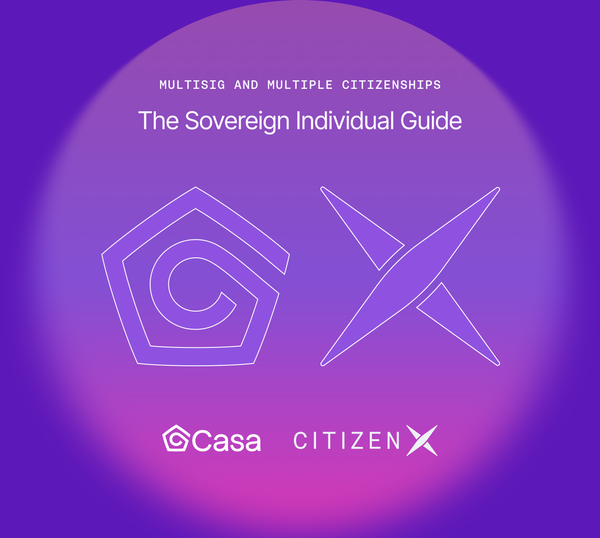
Build true sovereignty. Secure your wealth. Expand your options.

The intersection of cryptocurrency wealth and global citizenship has created unprecedented opportunities for high-net-worth individuals seeking tax optimization and enhanced mobility.

In a world of tightening capital controls, frozen bank accounts, and governments scrambling to regulate digital assets, securing a crypto passport is becoming one of the smartest plays in the space.

If you’re looking for an offshore banking jurisdiction that offers security, flexibility, and access to Asia, Singapore is one of the top choices.

Hong Kong has long been one of the world’s leading offshore banking centers, a bridge between East and West and a gateway to Asia’s financial markets.

Panama has long been a cornerstone of offshore banking in Latin America.

Greece offers one of the most accessible citizenship-by-descent pathways in Europe. This guide explains who qualifies, what documents you need, how to prove Greek lineage, and the steps to secure your Greek passport.

Estonia offers a clear pathway to citizenship for those with Estonian ancestry. This guide outlines eligibility, required documents, and the steps to apply for citizenship by descent.

Germany provides a structured route to citizenship for people with German ancestry. This guide explains eligibility, documentation, and the key steps to apply for citizenship by descent.

Ireland offers one of the simplest paths to citizenship for those with Irish ancestry. This guide covers eligibility, documents, and how to apply through the Foreign Births Register.

Italy’s jure sanguinis system offers broad eligibility for citizenship through ancestry. This guide outlines who qualifies, what documents you need, and how to complete the application process.

Latvia allows individuals with Latvian ancestry to reclaim citizenship under specific conditions. This guide covers eligibility, documentation, and the steps needed to apply for citizenship by descent.

Lithuania offers a clear path to citizenship for those with Lithuanian roots. This guide explains eligibility rules, required documents, and the application steps for citizenship by descent.

Poland allows many individuals with Polish heritage to confirm or restore citizenship. This guide covers eligibility, needed documents, and the key steps to apply through descent.

Portugal offers several routes to citizenship for those with Portuguese ancestry. This guide outlines eligibility criteria, documentation, and the steps to apply for citizenship by descent in 2025.

Americans with European ancestry face a watershed moment in 2025. Recent legal changes have created both extraordinary opportunities and significant restrictions across five major citizenship by descent programs, requiring immediate strategic decision-making.

Africa is emerging as a new hub for citizenship and residency programs, offering investors fresh opportunities and advantages.

Argentina is poised to reshape the global investment migration landscape with its anticipated Citizenship by Investment program, expected to launch between late 2025 and early 2027

Unchained is one of the most reputable Bitcoin companies, if you ask me. And I know many of our clients and me personally have very positive experiences working with them.

We will discuss how to maximize your ability to travel and relocate in case of a crisis, but also dive into the most powerful strategies for premium travel presented by the founders of FlyFlat, Zach and Cameron Resnick.

São Tomé and Príncipe launched the world's most affordable citizenship by investment program in August 2025 at $90,000, but prospective investors face a critical uncertainty: no documented cases exist of successfully using this passport for cryptocurrency exchange verification.

São Tomé and Príncipe launched the world's most affordable citizenship program in August 2025 at $90,000, but crypto investors face a stark truth: no one has successfully used this passport on Bybit or any major exchange yet.

São Tomé and Príncipe launched the world's most affordable citizenship program in August 2025 at $90,000, but its brand-new status creates uncertainty for cryptocurrency exchange verification.

São Tomé and Príncipe launched the world's most affordable citizenship by investment program in August 2025, but its brand-new status creates uncertainty for cryptocurrency exchange verification.

Offshore personal banking in Switzerland continues to exist, but it has adapted to a new reality. It is no longer about hiding wealth, but about protecting and managing it under one of the most stable and trusted financial systems on earth.

For U.S. citizens, offshore banking remains perfectly legal when done transparently and with full compliance.

Whether you want to diversify currencies, hold international investments, or establish a financial base in Asia, Singapore provides both opportunity and peace of mind.

Whether you’re an entrepreneur, investor, retiree, or digital nomad, offshore personal banking in Panama offers a powerful combination of accessibility, legal privacy, and flexibility.

Slovakia citizenship by descent lets individuals with Slovak heritage claim citizenship through ancestral ties.
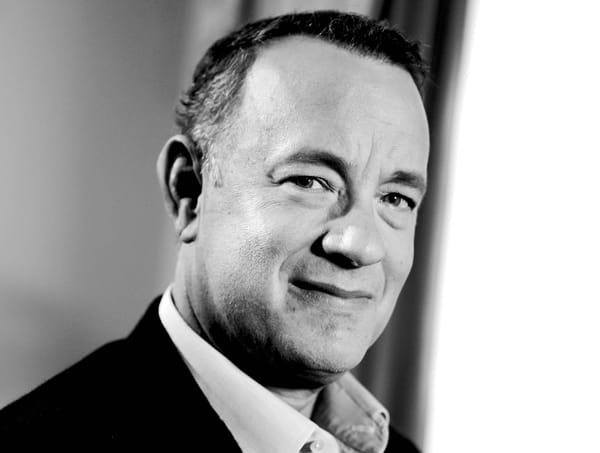
Tom Hanks is an American and Greek actor, director, writer, and producer who has a net worth of $400 million.

The Dominica Citizenship by Investment program offers more than just a second passport—it's your key to unlocking visa-free travel to over 140 destinations, securing your family's future, and creating a powerful hedge against political and economic uncertainty.

In a groundbreaking move, Sierra Leone has recently unveiled its highly anticipated Citizenship by Investment (CBI) program, known as GO-FOR-GOLD.

An exit tax is a final tax assessment that governments impose when individuals sever their tax residency ties with a country by renouncing citizenship or giving up a long-term residency status.


Arnold Schwarzenegger, an Austrian-American bodybuilder, model, actor, businessman, and politician, has an impressive net worth of $750 million.

As wealthy Americans and global citizens seek domicile diversification, the Philippines has become a top choice for alternative residencies.

At CitizenX, we've taken a fresh look at how citizenship investment works. By making each step clear and accessible, we maintain the highest security standards while eliminating unnecessary complexity. You'll always know where you stand, what's needed next, and how your application is progressing.

In late 2023, St. Kitts and Nevis introduced a significant process adjustment in their Citizenship by Investment (CBI) program by introducing mandatory interviews.

An Antigua and Barbuda passport opens doors to unprecedented global mobility, making it one of the Caribbean's most powerful citizenship by investment programs.

El Salvador passport is your key to travel freedom. With access to over 137 destinations worldwide, El Salvador passport holders enjoy a strong global mobility.

Through its citizenship by investment program, individuals can gain not only a second passport but also access to a range of benefits that come with being a citizen of this idyllic island nation.

Unlike the U.S. citizenship renunciation process, which often involves tax considerations beyond the date of renunciation, Canadian citizenship renunciation is typically more straightforward as Canada presently doesn't tax its citizens living abroad.

Most citizenship and investment providers still operate as if the digital revolution never happened. They move papers through physical offices, guard basic information behind consultation fees, request your data through insecure third-party web forms, and treat data security as an afterthought.

Entrepreneurs and global investors are increasingly looking for ways to optimize their personal and financial affairs across multiple jurisdictions.

In a world where political and economic landscapes shift at an unprecedented speed, high-net-worth individuals (HNWIs) face unique challenges.

Norway's wealth tax increase, expected to raise $146M, led to a $448M net loss as $54B in wealth left the country, reducing tax revenue by $594M.

Ever wonder where the world's super-rich individuals jet off for some rest and relaxation? A new report from Inevitable Insights reveals the high-end vacation destinations and getaways for centi-millionaires and billionaires in the West.

In this comprehensive analysis, we'll explore the full spectrum of destinations where citizens of Vanuatu can travel visa-free, breaking down access by region and visa requirements and waivers.
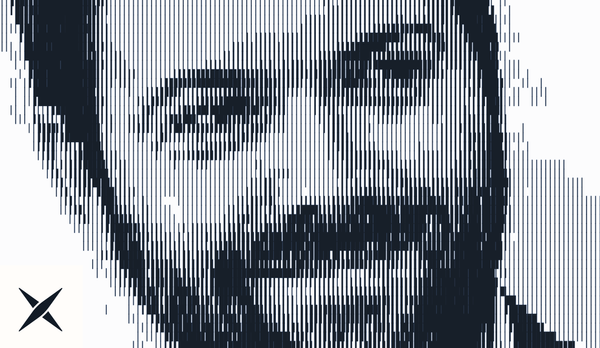
Juan Ramón Rallo, one of the leading Spanish libertarian economists, joins the CitizenX advisory board. Discover the future of citizenship.
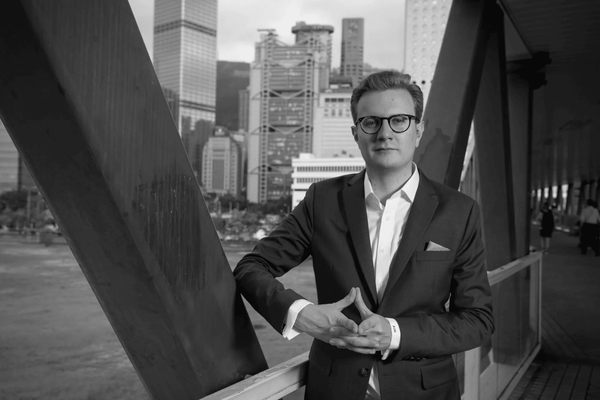
While traditional consulting businesses like Nomad Capitalist still rely on a content-heavy mass market approach and outdated processes, CitizenX is blends technology with top-tier concierge service to provide private, secure, and efficient solutions.
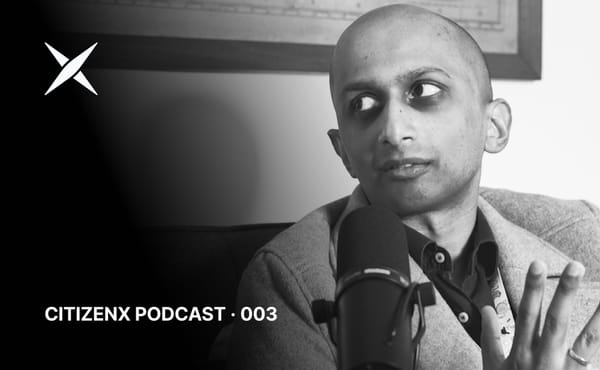
Stephan Livera hosts one of Bitcoin’s leading podcasts, focused on the economics and technology of Bitcoin.
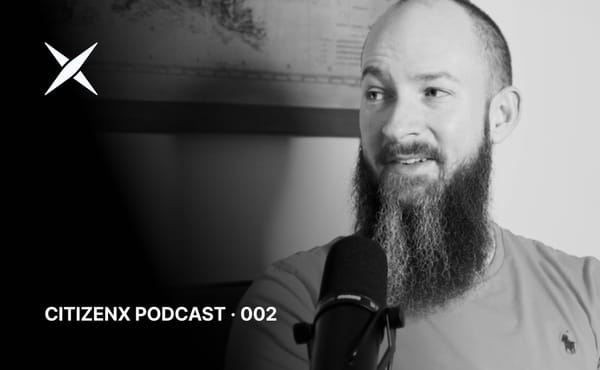
Jameson Lopp is a professional cypherpunk, Bitcoin proponent, and the co-founder & Chief Security Officer of Casa (casa.io).
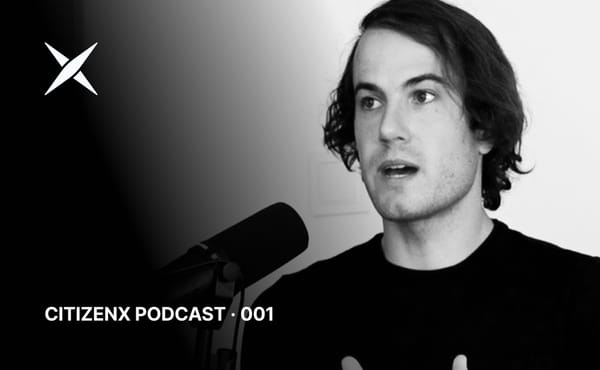
Luis Cuende is the co-founder and President of CitizenX. He previously co-founded Aragon, the tech stack for DAOs that helps sovereign organizations govern +25b in on-chain AUM.

Learn more about our proposed Citizenship by Investment program in Argentina and how it would improve the economy of the country.

France just announced they will include Bitcoin as a taxable asset under the wealth tax, which means that French residents will pay taxes on the unrealized capital gains of their Bitcoin.

Tina Turner, often hailed as the 'Queen of Rock 'n' Roll,' was an American-born Swiss singer and songwriter.

The Republic of North Macedonia stands as a strategic intersection of European opportunity and heritage.

As of July 2024, Forbes estimates Musk's net worth to be approximately $221 billion.